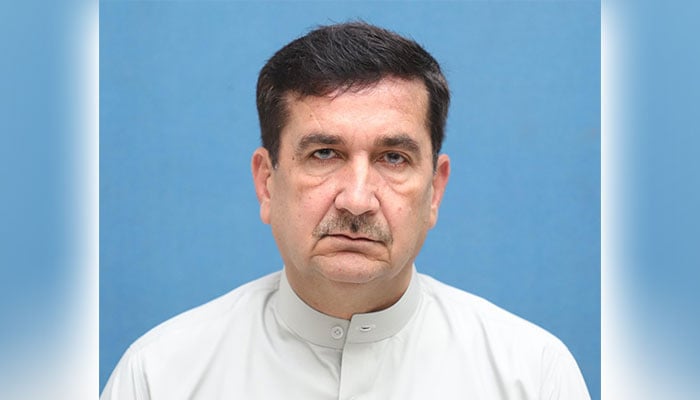Whether one believes it or not, I personally have no doubt that Quaid-e-Azam is the most beloved leader for the vast majority of Pakistanis, and many of us consider him an ideal for our country.
The military brotherhood has a 24-hour duty at his mausoleum, where fresh contingents salute him morning and evening, demonstrating that the Pakistan Army wholeheartedly views Quaid-e-Azam and his ideals as its own.
Similarly, all political, religious, and social groups, as well as all governmental and non-governmental institutions, have a presence of Quaid-e-Azam’s image, reflecting a consensus on his person and ideals despite political, religious, and institutional differences. The ruling party considers itself the heir of Quaid-e-Azam, and in a time when Nawaz Sharif was dominant, his sycophants referred to him as Quaid-e-Azam II.
Perhaps their shared birthdate and party were used as the basis for this title. The current major rival party, PTI, is eager to prove that Imran Khan is the second coming of Quaid-e-Azam, symbolically suggesting that Imran Khan is meant to complete Quaid-e-Azam’s unfinished work.
The founder of Pakistan People’s Party, Zulfikar Ali Bhutto, was influenced by Quaid-e-Azam’s philosophy during his student years. Jamaat-e-Islami, which was previously accused of opposing the Pakistan Movement, has now rejected those accusations and claims to embrace Quaid-e-Azam’s vision.
Maulana Fazlur Rehman’s ancestors and the Bacha Khan family were against Quaid-e-Azam and Pakistan, but after Pakistan’s creation, they too acknowledged this new reality. Both parties have repeatedly accepted Quaid-e-Azam and his Pakistan, albeit reluctantly.
This detailed account establishes that Quaid-e-Azam is a beloved leader for the majority. Now, understanding the demands of democracy is also essential.
In our region, keeping the beloved happy is considered a fundamental aspect of love. Sufi poets like Bullah Shah, Amir Khusro, and Shah Hussain showed their devotion by performing dances and expressions of love for their spiritual guides. As Pakistanis, whose beloved leader is Quaid-e-Azam, we must consider whether he is pleased or displeased with us.
One thing is certain: Quaid-e-Azam would have been pleased with Arshad Nadeem’s Olympic medal win while sitting in the afterlife, enjoying his favorite Craven A cigarettes. However, we have no means of knowing his thoughts on the general state of Pakistan. Recently, a new book by Venkatesh Dholey Pala, *Creating a New Medina*, provides an intriguing, though implausible, answer right at the start.
Dholey Pala writes, “While examining documents at the British Library’s India Office, I came across an unexpected document—a microfilm of Quaid-e-Azam Muhammad Ali Jinnah’s private papers. The handwritten document, though faded, reveals that on March 13, 1955, seven years after Quaid-e-Azam’s death and eight years after Pakistan’s creation, a spiritualist conducted a séance to communicate with his spirit. This session was organized by a government officer, Mr. Ibrahim.
Mr. Ibrahim was present for questioning. The spiritualist inquired about Quaid-e-Azam’s health and circumstances, to which he responded that he resides in a very bright place surrounded by flowers. Previously, he had complained of being in a cold and dark place, but he appeared very happy in this encounter. When asked if he would still like to guide the country as Pakistan’s founder, he replied with bitterness that guiding or advising Pakistan was no longer his responsibility and expressed regret at observing the country’s poor conditions.
Mr. Ibrahim, troubled, asked if there was no hope for prosperity in Pakistan. The spirit responded that prosperity requires those in power to sacrifice their ego and selfishness, but no one among the leaders seems willing to do so. When asked what advice he would give to Pakistan’s ruling classes, the spirit replied immediately: selflessness and nothing but selflessness, and added that while acquiring a country is easy, maintaining its freedom and integrity is extremely difficult.”
Whether this story is absurd, contrary to religion and reason, or a figment of Mr. Ibrahim’s imagination, the fact remains that the questions Quaid-e-Azam’s spirit raised in 1955 are still unresolved today. The current political, economic, judicial, and administrative crises are battles of egos and selfishness. If ego and selfishness were sacrificed and everyone took a step back from their positions, it could lead to a collective victory.
History teaches us that conflicts, violence, tension, arrests, and institutional stress ruin countries, while reconciliation and peace pave the way for prosperity. Political reconciliation and compromise in Pakistan could end the crises if everyone takes a step back. Although dreaming is a bad habit among us fools, thankfully, there is no restriction on dreaming. The Government of National Unity might seem like a utopian dream, but it is the most practical solution and beneficial for everyone, especially Pakistan.
In Bangladesh, political despotism was maintained for 15 years instead of reconciliation, which brought economic stability but was overturned by political unrest within a month. Pakistan is fortunate that no party is inclined towards creating chaos. Even Khan knows that a confrontation with the military could turn Pakistan into another Libya, Egypt, or Syria.
In my personal opinion, Mahmood Achakzai is a moderate and acceptable politician who could be made the Prime Minister of a coalition national government. For the position of Prime Minister from the Assembly, Ayaz Sadiq, a former classmate and friend of Imran Khan, and a favorite of Nawaz Sharif, could be a suitable candidate. Any unanimously agreed candidate would be acceptable. We need to move forward.




